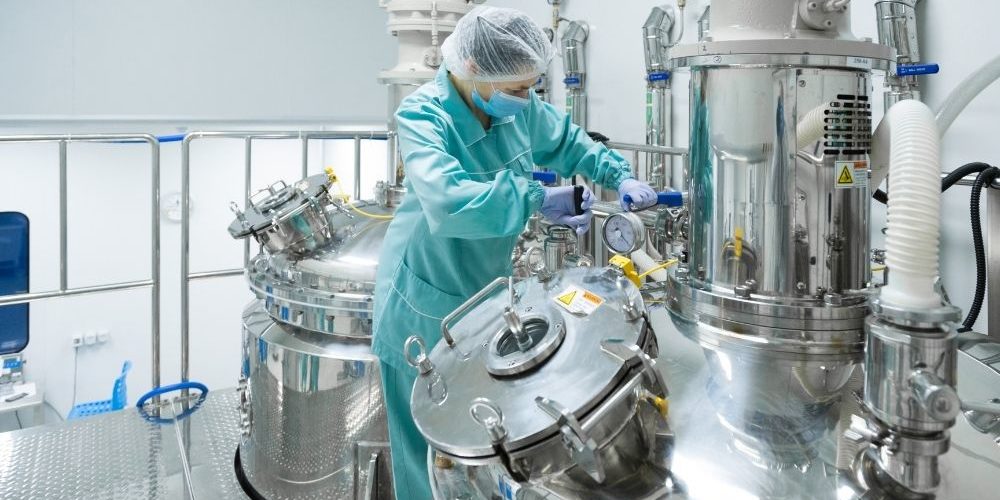Advanced chemical research is constantly evolving, bringing forth new trends and innovations that impact various industries and everyday life. From sustainable practices to cutting-edge technologies, these developments are shaping the future of chemistry. In this article, we explore some of the key trends and innovations in advanced chemical research, highlighting their significance and potential applications.

Trends and Innovations in Advanced Chemical Research
Green Chemistry and Sustainability
One of the major trends in advanced chemical research is the focus on green chemistry and sustainability.
Development of Eco-Friendly Materials
- Why: The need to reduce environmental impact has driven the development of biodegradable and recyclable materials.
- Innovation: Researchers are creating new polymers and composites that are both functional and environmentally friendly.
Renewable Energy Solutions
- Why: With the growing demand for clean energy, advanced chemical research is playing a crucial role in developing renewable energy technologies.
- Innovation: Innovations in solar cells, battery technologies, and fuel cells are making renewable energy more efficient and accessible.
Nanotechnology in Chemistry
Nanotechnology is revolutionizing chemical research by allowing scientists to manipulate materials at the atomic and molecular levels.
Nanomaterials and Their Applications
- Why: Nanomaterials exhibit unique properties that can be leveraged in various fields, from medicine to electronics.
- Innovation: The development of nanocatalysts, nanoelectronics, and nanomedicine demonstrates the versatility of nanotechnology in chemical research.
Precision Medicine
- Why: The ability to target specific cells or tissues enhances the effectiveness of treatments and reduces side effects.
- Innovation: Nanotechnology is being used to deliver drugs more precisely, paving the way for personalized medicine.
Advanced Analytical Techniques
The advancement of analytical techniques is crucial for understanding complex chemical systems.
High-Resolution Imaging
- Why: Understanding the structure and behavior of molecules at the atomic level is essential for advancing chemical research.
- Innovation: Techniques like cryo-electron microscopy and atomic force microscopy are providing unprecedented insights into molecular structures.
Spectroscopy and Spectrometry
- Why: Analyzing chemical compositions and reactions in real time helps in the development of new materials and drugs.
- Innovation: Advances in spectroscopy and mass spectrometry are improving the accuracy and speed of chemical analysis.
Computational Chemistry and Artificial Intelligence
Computational methods and AI are transforming the way researchers conduct chemical experiments and analysis.
Molecular Modeling and Simulation
- Why: Predicting chemical behavior and properties through simulations accelerates the discovery process.
- Innovation: High-performance computing and machine learning algorithms are enhancing the accuracy of molecular simulations.
AI in Drug Discovery
- Why: Discovering new drugs involves sifting through vast amounts of data and identifying potential compounds.
- Innovation: AI is being used to analyze data and predict the efficacy of new drugs, speeding up the drug discovery process.
Emerging Fields: Chemical Biology and Synthetic Biology
Chemical biology and synthetic biology are emerging fields that blend chemistry with biology to develop new biological functions.
Chemical Biology
- Why: Understanding biological processes at the chemical level can lead to new therapeutic approaches.
- Innovation: Chemical biology is enabling the design of molecules that can interact with biological systems in precise ways.
Synthetic Biology
- Why: Engineering organisms to produce useful compounds or perform specific tasks has vast potential.
- Innovation: Synthetic biology is creating new pathways for the production of biofuels, pharmaceuticals, and other valuable substances.
Conclusion
The landscape of advanced chemical research is vibrant and dynamic, with trends and innovations shaping the future of science and technology. From green chemistry and nanotechnology to computational methods and synthetic biology, these advancements are driving progress across multiple sectors. As research continues to evolve, it will be exciting to see how these innovations transform industries and improve our daily lives.




